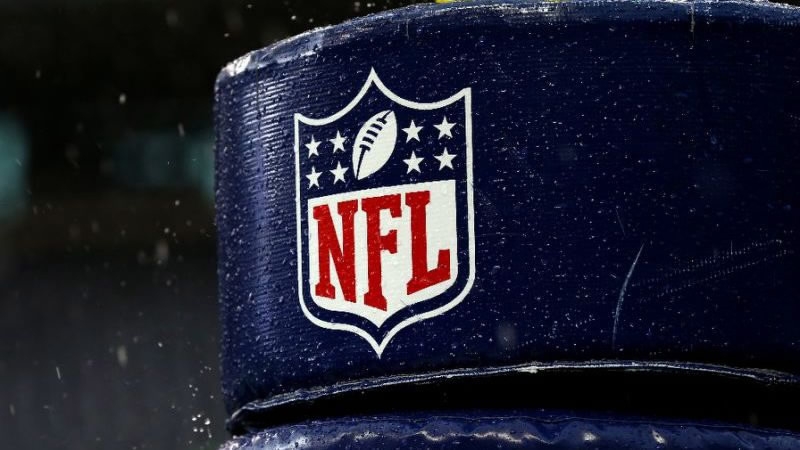
Sports
15:33, 17-Oct-2017
NFL China: Still building 10 years later
Matthew Watson

It’s been 10 years since the NFL first planted its flag in the Chinese mainland, and while other major American leagues such as the NBA, MLB and NHL have featured games in China, the NFL – America’s most-watched league – has yet to follow suit.
In 2006, the league announced plans for the China Bowl. The preseason game was scheduled to take place inside Beijing’s Workers Stadium in August 2007 between the New England Patriots and Seattle Seahawks. China Central Television (CCTV) would broadcast the game and it would represent the one-year mark before the Olympics in Beijing.
“If there’s any country we should bring our game to, it’s [China], the most populous country on earth, where there’s a great business environment and a great love of sport,” Patriots owner Robert Kraft said during the announcement.
The game was later canceled as the league turned its focus to London. A potential game rescheduled for 2009 never solidified either.
By 2016, news of a possible game, this time in 2018, was spreading. But by September 2017, those hopes were dashed.
“I don’t think it’ll be ’'18,” said NFL international head Mark Waller to Sports Illustrated. “I don’t think we’re ready,” adding that the league wanted to focus on getting people playing first.
And so the story has unfolded, with rumors of a game and growing excitement eventually being doused.
So, after a decade in the country, and millions of dollars spent, what has to happen before the league decides the time is right?
Long-term growth
According to Managing Director of NFL China Richard Young, the league’s focus is much bigger than just showcasing a one-off game – it’s about building longevity.
“The most important thing to understand is that the core objective of the NFL in China is to build its fan base here,” said Young, who oversees all of the league’s business activities in the country.
“We want to focus on staging a game only if it helps us build our fan base long term.”
The league first established an office in China in October 2007 with the goal of developing a presence in the world’s most populated country, undoubtedly lured by the sheer market size, the commercial success of the NBA and a seemingly unlimited source of growth opportunity.
However, despite multiple attempts, China has yet to see a game on its own soil. But the league's absence hasn't shifted the overall plan. Playing a game just for the sake of it isn't the main goal.
“I am confident that we could stage a successful game in China,” said Young, “but just staging a game is not the objective. It must work within a long-term plan to build the sport and the NFL.”
While the NBA, MLB and, most recently, the NHL have all been content playing preseason games in China, Young says the league is trying to go a step further by featuring a regular season game, which holds more weight. This will no doubt bring about a slew of questions regarding player safety, in terms of fatigue and jet lag, logistical issues, owners’ willingness to participate, etc. But before those questions become pressing, the base has to be established.

Patriots quarterback Tom Brady in Shanghai, China during a promotional event this summer. Reuters/Aly Song
Patriots quarterback Tom Brady in Shanghai, China during a promotional event this summer. Reuters/Aly Song
Building the digital base
In August, the league inked an exclusive, three-year deal with China’s Tencent Holdings Ltd. to stream everything NFL-related from the Draft to Monday Night Football to the Super Bowl for Chinese viewers. The platform is dominant in China, boasting over 960 million monthly active users – nearly triple the population of the US. While Young said the league does not release current viewership numbers, entering Week 7 of the NFL season he called the deal a “success,” explaining that last year the league streamed on eight different platforms, but the exclusive deal with Tencent has produced significantly higher numbers than all eight combined.
“We now have several million people each week watching live NFL games and VOD content. We fully expect Super Bowl viewership to increase significantly this season,” Young said. Last year’s Super Bowl had a viewership of 12 million people in China via 21 online and TV platforms, according to the NFL.
The league has increased its presence on social media by utilizing Sina Weibo, China’s version of Twitter, creating an NFL China app and Tian Tian NFL – China’s first local fantasy football league. "Social media has been a central part of our successful growth,” Young said, adding that it's probably the most important tool used to reach fans. All 32 of the league’s teams now have a Weibo account and the league’s page has a growing fan base of over 800,000 followers.
Getting people playing
The grassroots effort hasn't stopped in just the digital realm. As of 2016, the league estimates participation in the sport has increased six-fold. China now has over 80 contact football teams, over 150 NFL flag football teams, and over 20,000 youth players are involved in the sport through the NFL Play 60 program. Just last weekend, a slate of 12 contact football games featuring teams from the China University American Football League (CUAFL) and the American Football League of China (AFLC), which increased to 18 teams from 14 a year ago, kicked off. Many of the players gained their first exposure to the game through the league's flag football initiative.
From 2010 to 2016, the league estimates that the number of people interested in the NFL grew from just 1.6 million to 19 million, a jarring growth rate of over 1,000 percent.
The base is growing, but until the league feels it can fully carry the sport for more than just a 60-minute game once every fall, Chinese fans will have to wait a little longer.
As Young told Reuters in 2012, “Until our fan base is at a level where it can truly support itself, and there is additional demand for more, I‘m not supportive of holding a game here.
”Wembley sells out in three hours - that’s the NFL. Having empty seats and saying, ‘Oh we still have tickets left’ – that’s not the NFL."

SITEMAP
Copyright © 2018 CGTN. Beijing ICP prepared NO.16065310-3
Copyright © 2018 CGTN. Beijing ICP prepared NO.16065310-3